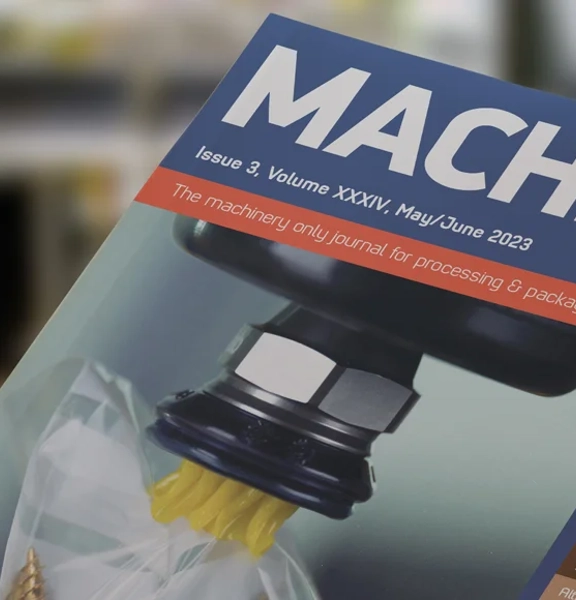Become a member
Take advantage of exclusive member benefits, world class events, networking and specialist support








 Become a member
Become a member 

10 November 2023
Seen for the first time at the PPMA Total Show last year was a pneumatic baler with a small extraction pipe from Mil-Tek UK that removes all dust from bags.
In the ‘rip and tip’ area of the production line, it is common practice to place unpacked 25 kg bags of various powders, into bins or containers once they have been tipped into the mixing machinery.
These paper bags/sacks contain powder remnants which escape gradually as dust which then ends up in the production environment. This is further exacerbated by staff hand flattening these bags once they are in the bins, to get more bags inside. The dust is pressed out of the bags and escapes in sometimes quite large volumes into the production areas.
The Mil-Tek solution goes hand in hand with the company’s Lean Compacting efficiency solution. Rather than placing the empty bags of dusty powder into bins before transporting them outside, these can now be placed in strategically sited pneumatic balers for immediate compaction.
And by attaching a small extraction pipe from the baler to the extraction set up within the factory, all dust in these bags is removed from the production area, and no further dust from the hand flattening can then take place. The impact is a significant reduction in dust within the production environment, plus the more traditional efficiency and recycling benefits offered by Lean Compacting areas.
The addition of the extraction pipe adds a small cost to the solution, ensuring it is both practicable and affordable for all production facilities experiencing the rising dust problem.
By using the compressed air line within the production area to power these small local compaction solutions, the material can be packaged in strategic sites, meaning all material is compacted before being transported outside. This typically reduces trips by 10:1 and, says the company, the savings are typically about £30,000 - £50,000 in the first twelve months.
Through a concept called ‘Lean Compacting’, Mil-Tek utilises common lean practices, such as value stream mapping, to isolate inefficiencies in the production area, primarily from handling packaging.
Once products are unpacked from the goods-in area, the cardboard boxes, plastic shrinkwrap and other packaging materials become ‘waste’. This waste packaging material often then takes an inefficient journey as it is walked or transported via forklift truck around the building until its final destination outside. “By measuring these journeys and implementing more efficient internal compaction solutions, businesses around the world have made significant time savings,” says international sales director Bryan Wingfield.
In the process, they can also realise these additional benefits:
Tel: 01244 546880
Website: www.miltek.co.uk